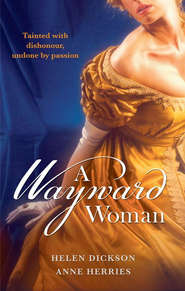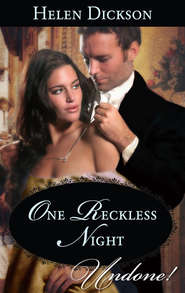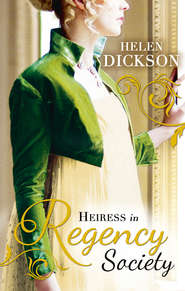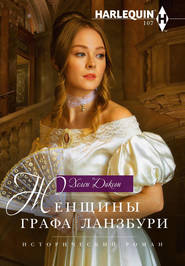По всем вопросам обращайтесь на: info@litportal.ru
(©) 2003-2024.
✖
Destitute On His Doorstep
Настройки чтения
Размер шрифта
Высота строк
Поля
‘And how have you fared, Mary, these past four years?’
The housekeeper shook her head sadly. ‘After all the heartache and anxieties that have befallen us since the wars started, on the whole I can’t grumble. I’ve always had food to eat and a roof over my head. Too many good royalists have lost everything.’
‘We’ve all suffered,’ Jane replied, suddenly sombre, ‘and there are many Royalists still in hiding after Worcester with a price on their heads. If there’s any justice in the world, King Charles II will come into his own before too long.’
Mary shook her head sadly. ‘Dreams, Mistress Jane. That’s all they are.’
‘Maybe so, Mary, but without dreams we achieve nothing. But,’ she said on a more cheerful note, ‘there’ll be no talk of war today. I’m here now, home at last, and from what I saw on my way to the house, Silas has done an excellent job. It’s so good to be home, Mary. You can’t imagine what it means to me. I want you to tell me everything that has happened.’ Mary opened her mouth to speak but Jane gave her no time to answer before ploughing excitedly on. ‘I’ll just go and take a look around upstairs. I’ll need some hot water for a bath—I feel so hot and dusty after the journey,’ she said, skipping towards the stairs.
Mary’s arm came out to stop her. ‘Wait—there’s something I should tell you, something you should know before …’
Jane was deaf to anything she had to say as she went up the wide staircase to explore the house, trying to ignore her worsening headache and her aching legs in the joy of being home. She smiled at the servants as they went about their work. She certainly hadn’t expected to see so many; in fact, the house seemed fully staffed. Fresh-cut flowers filled vases and the silver gleamed. Floorboards, oak panelling and furniture were highly polished, and was she mistaken or were there some pieces she hadn’t seen before?
With no one living in the house for four years, she had expected the rooms to smell fusty with dust everywhere, but they didn’t, which she considered strange.
Jane paused in the doorway to her old bedchamber and her expression became one of puzzlement. Tentatively she took a few steps forwards. As she did so she found she was able to distinguish the things around her better and she began to take in the details of the plain but sumptuous decor. The beautiful eggshell blue-and-silver curtains and bed hangings she had chosen many years ago were gone. Now the bed was entirely hung with midnight-blue velvet, quite plain and unadorned, save for the gold cords that held back the heavy curtains. The windows were hung with the same fabric as the bed. A pair of exquisitely carved ivory statuettes along with a chessboard of amethyst and silver, shining in the light, stood on a table by the window. On either side of the table were two comfortable leather chairs, which she had never seen before, and the portrait of her father, which had hung over the dresser, and the miniatures of her mother and herself on its surface, had been removed.
Who was responsible for the alterations and why? On one of the bedside tables was a leatherbound book by the sixteenth-century popular dramatist Christopher Marlowe. A scent hung in the air. It was a scent that was unfamiliar to her, a masculine scent. She was more bewildered than ever, for there was something intensely personal about the scent and the changes. Moving slowly round the bed, on the other bedside table there was a pistol. Holding her riding crop in one hand, she picked the weapon up with the other and gazed at it in confusion. She was curious, but had no time to dwell on the changes, for at the sound of several horses clattering into the courtyard, she hurried to a window and looked down.
Three horsemen had drawn up in front of the house, but only one dismounted. Turning back towards the stairs she scowled, in no mood for visitors. What did they want? Treading quietly, she paused halfway down the stairs to observe the man who had entered, removing his hat, the heels of his wide-topped boots sounding loud on the stone floor. His presence seemed to fill the hall with authority. He went to the large hearth where a fire struggled to blaze. In an attempt to bring it back to life, he kicked a log into the centre of the dull glow, moving back when it sprung to life.
From where she stood, Jane’s attention was entirely focused on him. The stranger’s imposing presence seemed highly inappropriate in her late father’s home. Tall and well built and perhaps thirty years old, he was wearing severe black, but he had loosened his plain white stock and removed a leather glove from his left hand. The sun slanting through one of the high windows shone on his curly dark brown hair springing thickly, vibrantly, from his head and curling about his neck. His face was not handsome but strong, striking, disciplined and exceptionally attractive, the expression cool. He was also one of Cromwell’s Roundheads, a man who was familiar to her, a man she had once risked her life for.
The tender feelings that had governed her actions all those years ago had vanished when Cromwell’s Roundheads had killed her father. And now, finding one of them at Bilborough Hall, his very presence defiling the beloved walls, made her shake with anger. Damn them all, she thought. They had descended like a plague of locusts on every Royalist house in England, stealing whatever they could get their hands on, and in most cases abusing the inhabitants and leaving them to starve.
She continued on down the stairs, finding it difficult to conceal the sense of outrage that possessed her on finding this Cromwellian in her home, treating Bilborough Hall as if he owned it. Sensing her presence, he spun round, all taut muscle, lean power and pulsing strength. His gaze was fixed on her as she crossed towards him. A well-defined eyebrow jutted upwards in what could only have been astonishment, and then his eyes narrowed, half-shaded by his lids as he coolly stared at her. There was a barrier of aloofness about him, an hauteur, which was intimidating. He had the healthy glow of one who liked to be in the open, and the air of someone who was not happy to be confined indoors all the time.
In that moment Jane noticed the startling, intense blue of his eyes, and again she thought how extraordinarily attractive he was. His face was hard, but around his eyes there was the tracery of lines from his ready smile. Her heart seemed suddenly to leap into her throat in a ridiculous, choking way and she chided herself for being so foolish. Their paths might have crossed many years ago, but he was, after all, still a stranger to her, and a Roundhead at that. The hounds had got to their feet and taken up what had every appearance of a protective stance on either side of him. No reasonable explanation could be found for their acceptance of this stranger, at least none of which Jane was aware.
‘You are a stranger here, sir,’ she said calmly, having no intention of reminding him that they had already met for at that time, despite having helped him, they had still been enemies and she wondered how he would react to her if she did.
He bowed and answered in a deep, rich voice, ‘Colonel Francis Russell at your service.’ He straightened to his full height and studied her closely, because, apart from recognising her as the young woman he had seen riding her horse earlier, there was also something vaguely familiar about her and he couldn’t think what. He was moderately sure they had never met before, and yet … No, surely he would not forget a face as lovely as this. Her beauty fed his gaze and created in his being a sweet, hungering ache that could neither be easily put aside nor sated with anything less than what he desired. It was the natural desire a man felt for a woman, a desire Francis had not felt in a long time.
Jane knew instinctively that he was just as aware of her as she was of him, and she bent her head so that he should not see her confusion or the anger in her eyes.
‘Kindly explain why it is that you should be holding a pistol in such a way as it could do much harm,’ he said.
She lifted her eyes, not realising until now that she was still holding the weapon. He was studying her closely and she was aware of the tension in herself. ‘I am Jane Lucas, daughter of the late Sir John Lucas.’
‘And the pistol?’ He indicated the gun in her hand.
The amazing eyes were still focused on her as he waited for an answer. She drew a breath. ‘I picked it up when I was upstairs.’
‘And were you going to use it on me?’
She lifted her chin as her eyes caught him running a surreptitious eye over her appearance, the expression on his face condemning as it settled on the naked flesh at her throat. ‘No, I was not, Colonel Russell. I was merely going to place it out of harm’s way.’
‘Harm being?’
‘How would I know that, since I have only just now returned home?’
‘Home?’
‘Bilborough Hall, of course.’
Francis gave her a long, slow look, a twist of humour around his beautifully moulded lips. He had been aware of who she was from the moment he had set eyes on her. He recognised her from some of the Lucas family paintings he had seen on his arrival at Bilborough Hall, painted when she had been a girl. Her dark beauty had startled him. There had been a plumpness to her features, and in her eyes the artist had captured an over-boisterous girl. With the passing of the years she was much changed. At thirty years of age, he had known many beautiful women, selecting those of fire and passion, and yet he’d had no desire to form a long-standing relationship with any one of them. He had not expected to find the girl in the painting to have blossomed into such an exotic creature.
No man could remain unmoved by this young woman’s beauty. With hair as black as ebony and as sleek as silk, high cheek bones and slanting eyes as dark as two shining blackberries, a figure to rival Venus and full, ripe lips that betrayed her sensuality, she was all temptation—a bewitching, exotic creature. Her neck was long and there was a certain grace in her movements that reminded him of a swan. He was conscious of the musical resonance of her voice when she spoke, and when he lowered his eyes he saw tiny beads of perspiration in the V of her dress, open at the throat, and the thrust of her high, firm breasts straining against the fabric.
The smile building about his mouth creased the clear hardness of his jaw and to Jane, it made him appear in that moment the most handsome man in the world. The flame in his gaze kindled brighter, burning her with its intensity. Then, suddenly, his direct, masculine assurance disconcerted her. She was vividly conscious of how close he was to her. She felt an unfamiliar heat flushing her cheeks that she had never experienced before.
Instantly she felt resentful towards him, threatened in some way. The glow in her face now faded. He had made too much of an impact on her, this Roundhead, and she was afraid that if he looked at her much longer he would read what was in her mind with those, clever, brilliant blue eyes of his. She straightened her back, raising her chin in an effort to break the spell he wove about her with his eyes.
Hearing his companions’ horses clattering out of the courtyard, she said, ‘If I have offended you in any way by greeting you with a pistol in my hand, it was not intentional. I ask your pardon. I should hate you to leave Bilborough Hall thinking I am lacking in manners.’
A well-defined eyebrow jutted sharply upwards. ‘Leave? Why should you think I am leaving? I am not going anywhere.’
‘But—your friends. I think they are leaving.’
‘So they are. Without me.’
‘But—forgive me if I appear somewhat foolish, but if they are leaving, why are you not going with them? Excuse me for being blunt, Colonel, but I find the mere thought of entertaining the enemy in this house offensive.’
‘Enemy?’ A soft, amused chuckle issued forth from Francis. ‘I am not your enemy, Mistress Lucas. Far from it. War seems to get the best of everybody, but the war is over and the country is trying to pull itself together.’
‘Not while that odious man Oliver Cromwell is in charge. I must ask you to be plain, sir, and explain to me why I should find a Roundhead in my home treating it as if it were his own. Or do you prefer prevarication to plain speaking?’
‘No,’ Francis said slowly. ‘I always make a point of speaking plainly.’
‘Then why have you not left with your friends? Where will you stay?’
‘Right here. In this house.’
‘Oh, no, I think not,’ Jane said, a boulder settling where her heart had been, disquiet dwelling where just a short while before there had been happiness and joy.
‘No?’
‘No.’
‘Why should I go anywhere when this is my home? The house and estate belong to me now. I purchased it fair and square.’
Jane stared at him in instinctive fear. ‘But—how can it? You lie.’
‘I do not.’
For a long moment she did not move. She was shocked, and as she sank on to the edge of the settle, clutching its arm, an onlooker might have supposed she had died. Surely it could not be true. She had heard of such happenings, of course, of properties belonging to Royalists being sequestered, but for it to happen to her—to have Bilborough taken from her! She was too shocked to weep and this man’s careless indifference to her plight brought her to her feet, and the ill-judged words sprang to her tongue almost without conscious thought.
‘How dare you! How dare you be so callous, so thoughtless at what your purchase of Bilborough would do to me, the owner of this house.’












